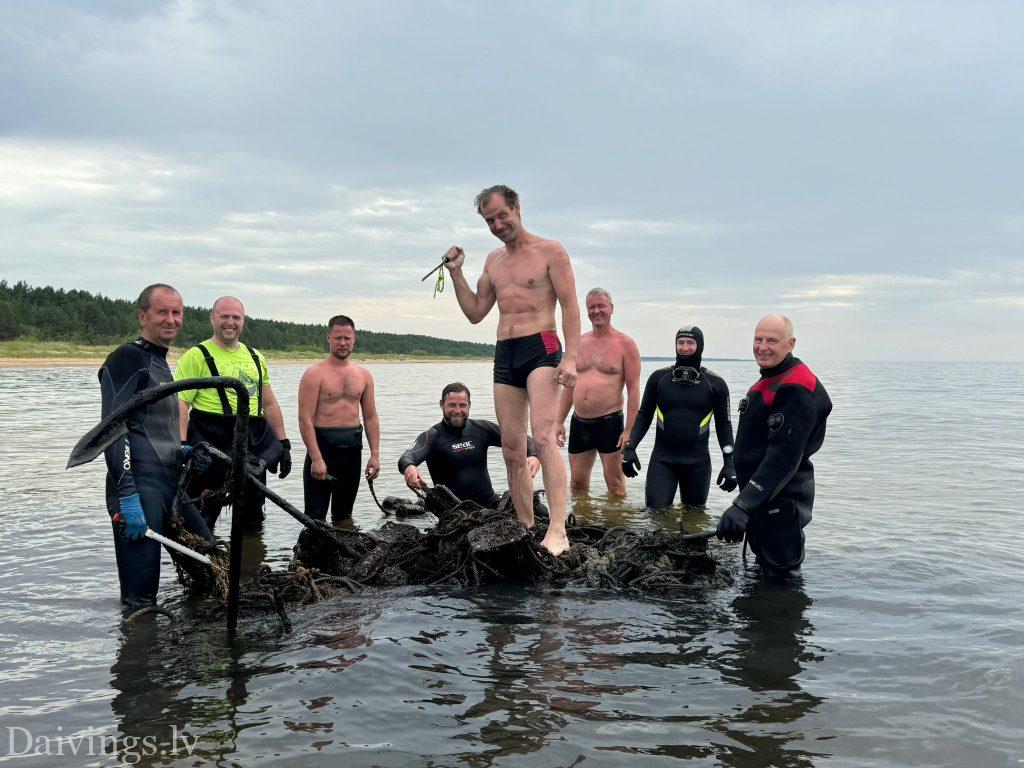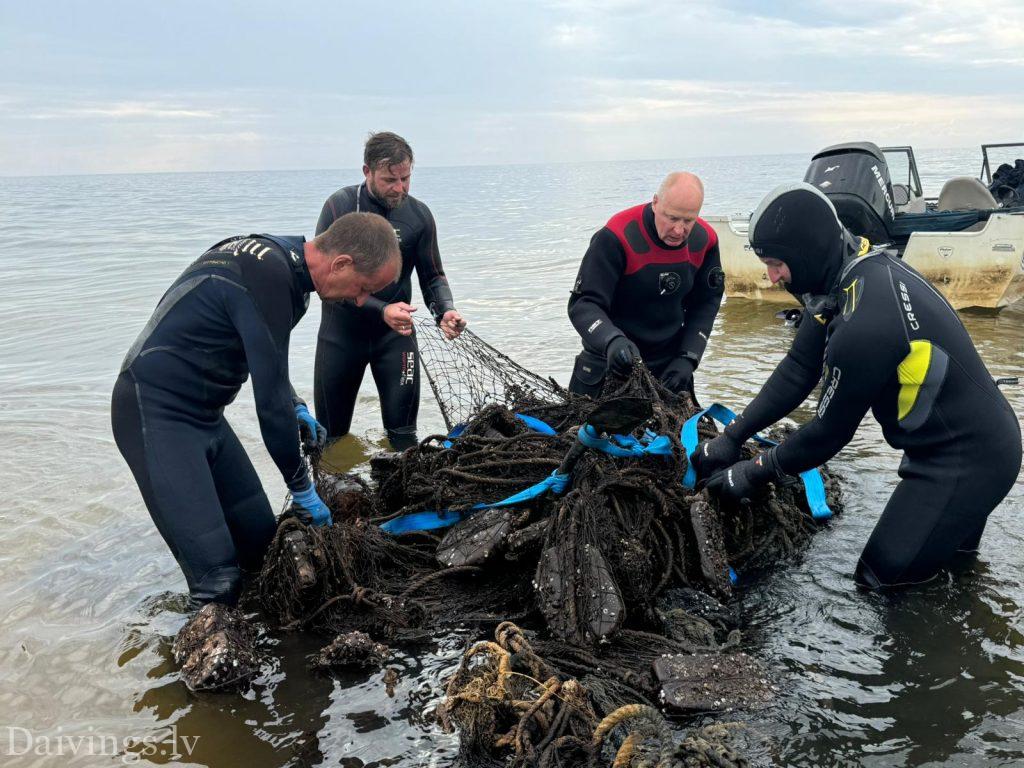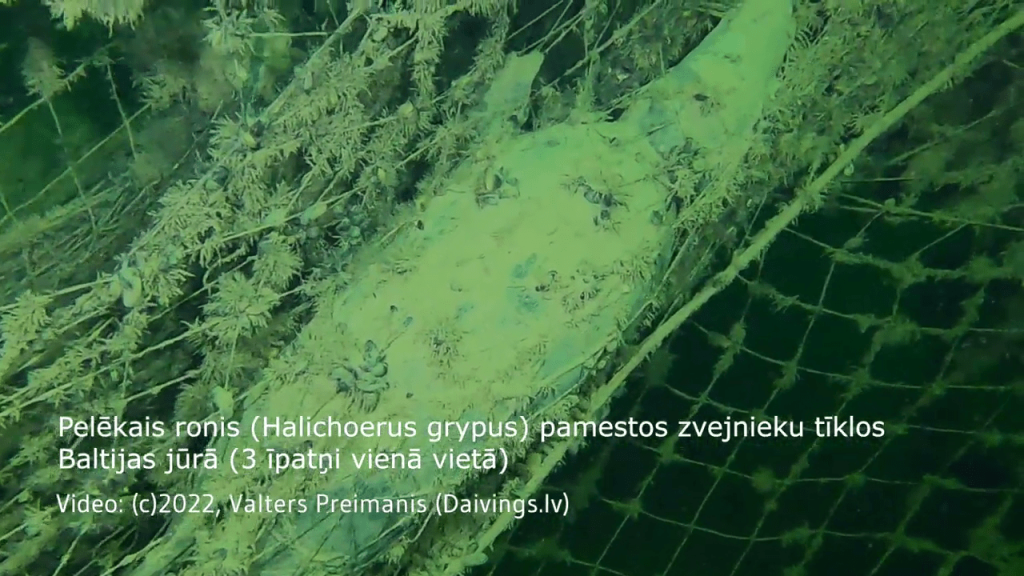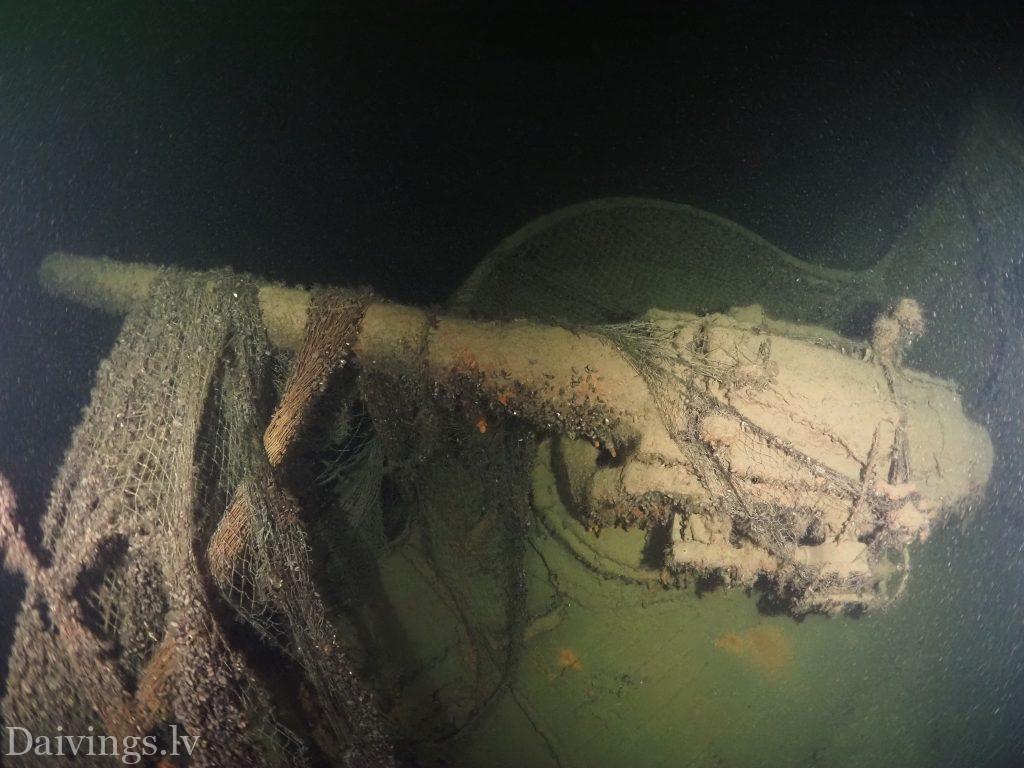Volunteer divers highlight a fishing net weighing several tons, which the divers had surveyed in the summer of 2023. "Our goal was simply to clean the sea of hazardous waste." This is a strong signal to society - "Care for the environment must not become a propaganda tool"
A team of volunteer divers from the diving club "Daivings" has done an impressive job cleaning the Baltic Sea from a dangerous "ghost net".
Near the coast of the Gulf of Riga, in front of the Kalngale beach, they unearthed a three-ton old fishing net, which posed a threat to both the safety of navigation and the inhabitants of the sea. But behind this heroic work lies another story - the fight for the idea of a clean environment and against the use of propaganda.
It all started in 2023, when Daivings divers discovered this huge net, filmed it, surveyed it and sank it, removing several hundred floats to reduce its danger. Information about the location of the network entered the public domain, and several organizations began to search for information about its location, "leaking" the location, in order to use this finding for their own propaganda purposes. Upon learning of these intentions, the "Daivings" team decided to act immediately.
- In the spring of 2008, a net hoisting operation was organized at personal expense, involving 12 people and 3 motorboats. "We did not want this event to be used as part of a political or advertising campaign," explains Andris, representative of the diving club "Daivings". "Our goal was simply to clean the sea of dangerous waste.“
The operation was complex and time-consuming – five lifting buoys were used to raise the net and it was raised with metal anchors. "This abandoned net not only threatened the safety of navigation, but also continued to catch fish, which died after becoming entangled in it," says the captain of the diving team. "We are pleased that we were able to contribute to keeping the Baltic Sea clean.“

In cooperation with "Carnikavas Komunalservis", the net was brought ashore to be dried and disposed of. This successful operation is not only a testament to the professionalism and determination of the "Daivings" team, but also a strong signal to the public - "concern for the environment must not become a propaganda tool“.

We also invite other divers and nature lovers to join this fight for a cleaner Baltic Sea!
"Ghost nets" are a serious threat to the environment of the Baltic Sea and its inhabitants. Highlighting them is important for several reasons:
1. Protection of marine animals: Abandoned fishing nets continue to 'fish' long after they have disappeared to the seabed. Fish, seals, seabirds and other animals become entangled in these nets, cannot escape and die. Netting helps prevent unnecessary animal suffering and death.
2. Maintaining the balance of the ecosystem: "Ghost nets" disrupt the natural balance of the marine ecosystem. They not only kill marine animals but also damage the seabed and coral reefs. Netting helps restore and maintain the health of the marine ecosystem.
3. Improving shipping safety: "Ghost nets" can pose a safety hazard to shipping by becoming entangled in ship propellers and causing damage. Highlighting the nets helps to eliminate these risks and improve the safety of shipping.
4. Reducing environmental pollution: "Ghost nets" are made of synthetic materials that slowly break down and contaminate the marine environment with microplastics. Raising the nets helps reduce plastic pollution in the sea and protect the marine environment.
5. Promotion of responsibility: Highlighting 'ghost nets' is a way to promote responsibility for the marine environment and engage the public in its protection. It shows that everyone can contribute to a cleaner and healthier sea.


The work of the team of divers is a great example of how volunteers can make a significant contribution to combating 'ghost nets' and protecting the marine environment.

